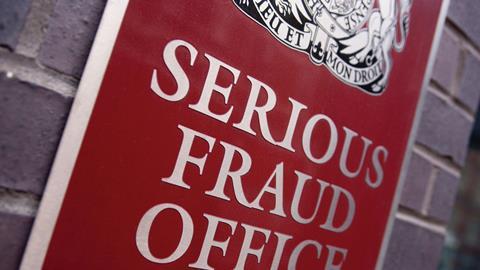The first DPA in this country has proved to be exactly the kind of illustration of a DPA that the SFO would have hoped for.
The first deferred prosecution agreement (DPA) in this country has proved to be exactly the kind of illustration of a DPA that the Serious Fraud Office (SFO) would have hoped for.
ICBC Standard Bank self-reported the allegations to the SFO before conducting its own investigation and demonstrated a high level of co-operation, winning praise from the SFO and the judge for its conduct. In these circumstances, the court was clear that the DPA was in the interests of justice and that its terms were fair, reasonable and proportionate.
Charges arose from a capital-raising project for the government of Tanzania, involving both Standard Bank Plc and its sister company, Stanbic Bank Tanzania Ltd. A fee of 1.4% of the $600m raised had been agreed, but was later amended to 2.4% to allow $6m to be paid to a local agent, Enterprise Growth Market Advisors. No evidence was found of work done by this company, two of whose directors and shareholders were connected to the government. Two employees of Stanbic arranged for payment to EGMA but, as this helped secure a role for Standard Bank Plc as well as Stanbic, they were performing services for the English company and it was therefore liable under the Bribery Act.
The Tanzanian government will be reimbursed for the sum that was deducted from the capital-raising, ICBC Standard Bank will disgorge its gross profits and pay a fine and the cost and time of a prosecution have been avoided.
What seems unlikely to be an issue here, but may be in other cases, is follow-on litigation. Direct victims of criminal conduct are likely to be compensated under the terms of any DPA, as in this case. The DPA Code published by the SFO and the Crown Prosecution Service expressly prioritises compensation payments over other financial penalties.
However, in many cases where a company resolves criminal allegations via a DPA there will be ’indirect’ victims, such as competitors, waiting in the wings with civil claims for losses stemming from any criminal conduct. Many contracts won corruptly will have been the subject of tender exercises. Those who lost out may consider pursuing the corrupt winner for the costs of the tender exercise or even the profit they would have made from the contract had they won it. Several competitors could all claim, relying upon ’loss of a chance’ principles. In other circumstances consumers may have paid too much as a result of corruption or fraud, raising the possibility of group litigation or class actions.
Will the DPA process assist those with potential civil claims? In some ways it might. In the past the SFO has used civil recovery orders to settle cases with companies, with little or no information on the background facts becoming public. Part of the UK DPA process is that an agreed statement of facts must be published upon court approval of the DPA, setting out the facts that underlie the charges. The defendant company certifies accuracy, preventing any dispute about its contents in any forum. In ICBC Standard Bank’s case, the agreed statement of facts ran to 55 pages, naming individuals implicated in the corruption and including excerpts from interviews. It is easy to imagine cases where such statements will provide plentiful evidence to support civil claims or help direct requests for pre-action disclosure.
Negotiating with prosecutors and regulators
Claimants might also attempt to obtain communications between the SFO and defendant company that took place as part of the negotiations, particularly if there were allegations that did not ultimately form part of the DPA. This issue arose earlier this year in the context of negotiations between a bank and the Financial Conduct Authority (FCA) as part of a regulatory investigation that led to FCA enforcement action. A third party sought disclosure of this correspondence in civil litigation and the bank asserted ’without prejudice’ privilege over it.
There was no previous authority on whether ’without prejudice’ privilege applied in these circumstances. Neither the Decision Procedure and Penalties Manual nor the FCA Enforcement Guide refer to discussions with firms under investigation as being without prejudice. Nonetheless, Mr Justice Birss held in Property Alliance Group v Royal Bank of Scotland [2015] EWHC 1557 (Ch) that the principles applicable to without prejudice communications in civil proceedings could be applied by analogy. He found that such privilege had been waived, however, by references made by RBS to the contents of the FCA’s findings. This case is currently under appeal.
The future
The SFO expects another DPA to go before the courts for approval this year. Given the increased scope of corporate criminal liability in recent years and the SFO’s need for results on a tight budget, it is likely a steady flow of DPAs will follow. Companies and individuals who feel they have suffered as a result of criminal wrongdoing but are not awarded compensation under these DPAs will be watching carefully.
Ed Crosse is a disputes partner at Simmons & Simmons and committee member of the London Solicitors Litigation Association
































No comments yet